SUMMARY
This is AI generated summarization, which may have errors. For context, always refer to the full article.
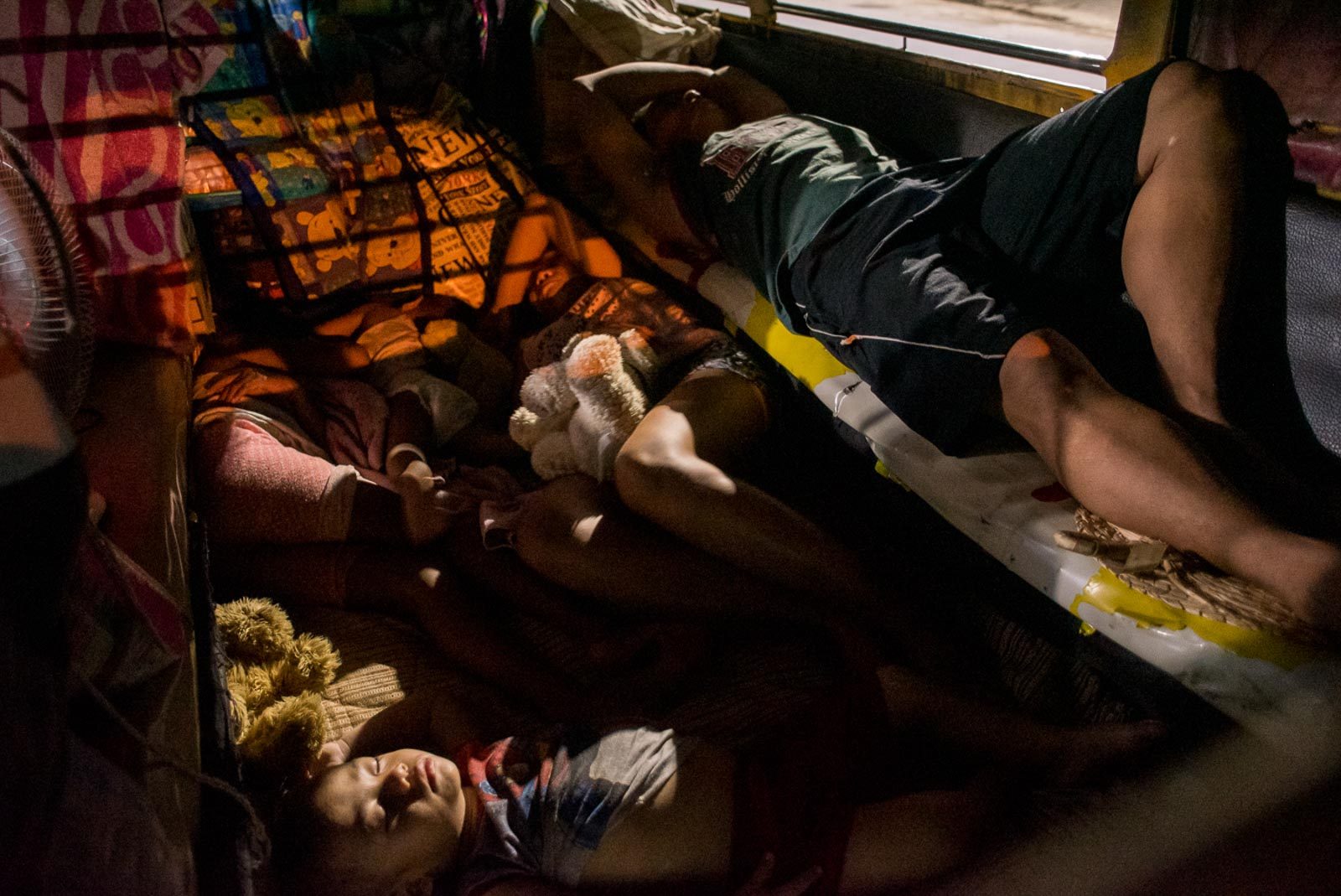
MANILA, Philippines – Just as the island of Luzon was placed under lockdown and the operations of mass public transportation were halted in March, jeepney driver Julius Evangelista and his family had been kicked out of their home in Tondo, Manila.
They were notified early in March of the arrival of new tenants who would soon take their place, but the short eviction notice made it impossible for them to find a new house.
“Maghahanap pa naman sana ako ng malilipatan na bahay noong time na ’yun dahil alam namin na magpapaalis na ’yung may-ari,” Julius said. (I was about to look for a house to move in at the time because we knew that the lessor was going to ask us to leave.)
Then the lockdown came.
Without shelter and livelihood, Julius and his partner Erlin Coquia agreed to temporarily live inside the jeepney until the lockdown was lifted. The couple took with them their 3 children ages 11, 3, and 2.
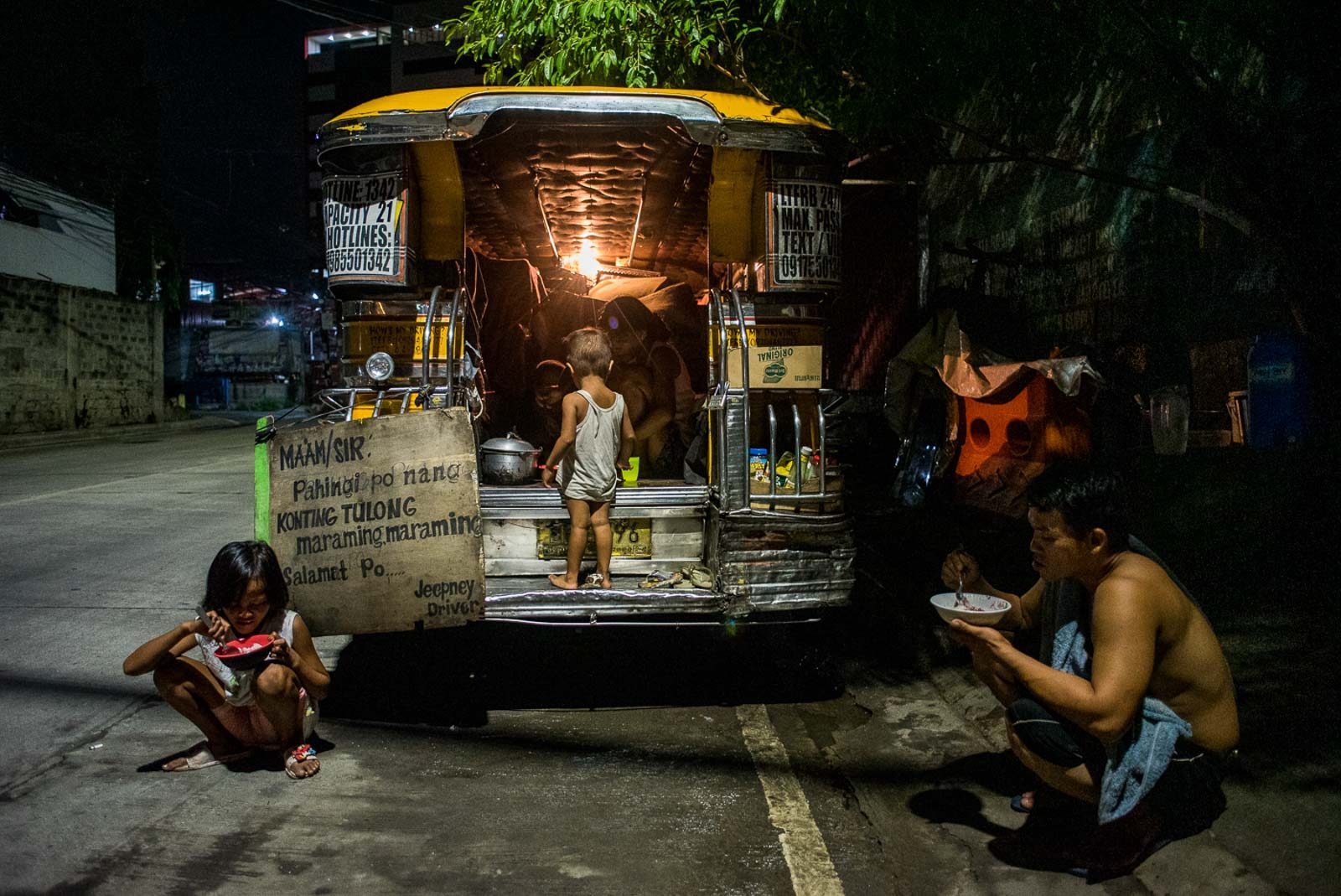
Julius drove to Quezon City and parked the vehicle across his operator’s vulcanizing shop. “Kung may problema, may malalapitan kami kung sakasakali,” he said. (In case there will be a problem, we have someone to seek help from.)
At the time, they had nothing but a few pieces of clothes and P400 in cash.
Nearly 3 months into the lockdown, they still live inside the jeepney without the means to support their themselves apart from the donations and assistance from passersby.
‘Pahingi po ng konting tulong’
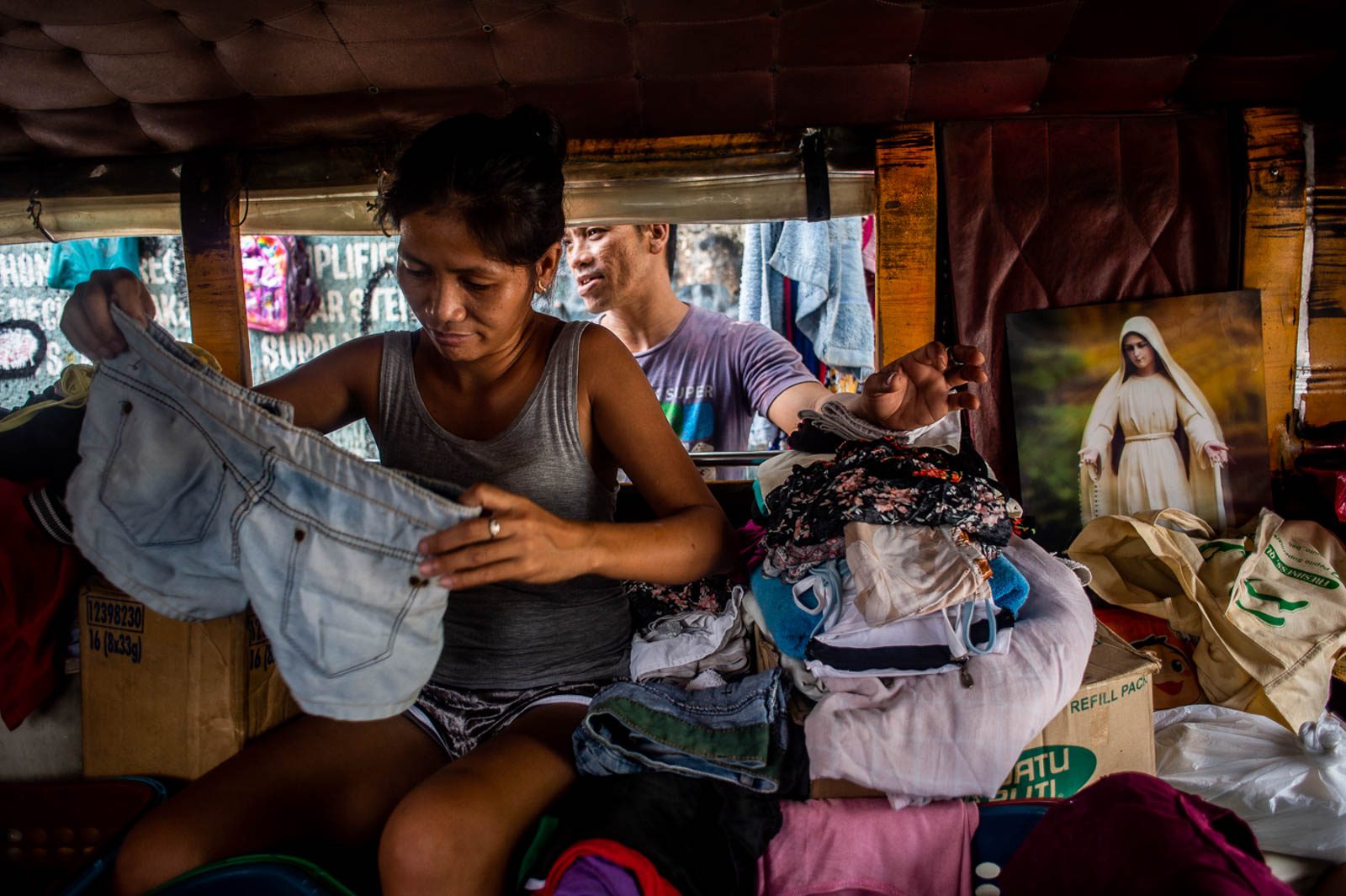
“Napakahirap (It’s extremely difficult),” Julius said as he recalled their first few weeks living in the jeepney. They would wake up as early as 5 am, but would have to skip breakfast and wait for noon before opening one can of sardines to be shared among the 5 of them.
At night, they would wait for the free dinner distributed by a nearby church. They would sleep by 9 pm and hope that their two-year-old son would not wake up in the middle of the night because they had no milk to feed him.
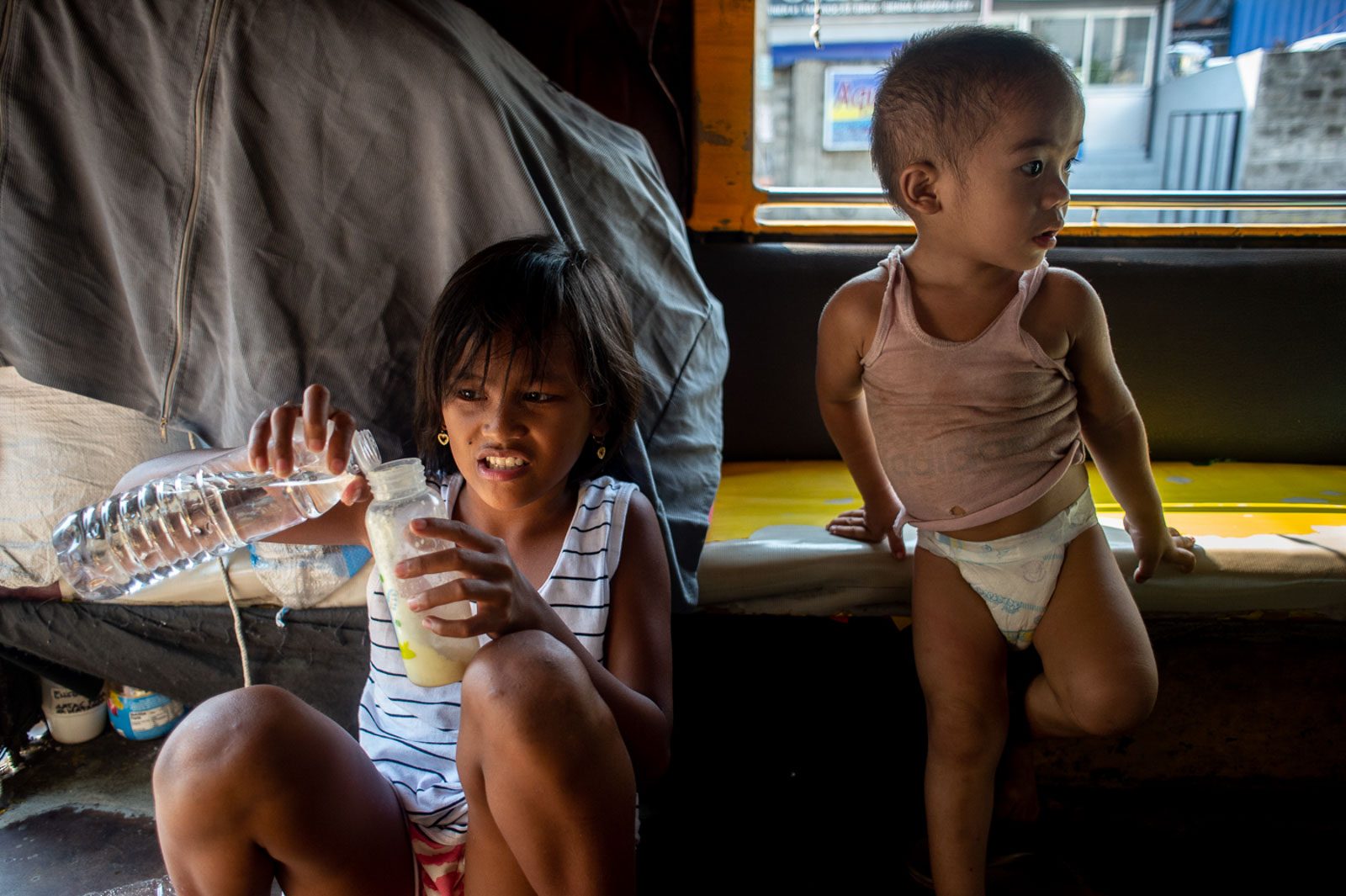
Their supplies eventually ran out. That was when Julius decided to put up signages asking for help. He collected some scrap wood, borrowed a marker pen, and asked his wife to write “Maam/Sir: Pahingi po nang konting tulong. Maraming salamat po. – Jeepney Driver.”
(Ma’am/Sir: May we ask for a little help? Many thanks. – Jeepy Driver.)
“Baka dito, kahit ’di tayo magsabi, maiintindihan siguro ng makakabasa ’yan. Kung anuman ang ibigay nila, maliit o malaki, talagang tatanggapin namin at magpapasalamat kami,” he said.
(Maybe through this, even if we don’t ask, the reader will understand. Whatever they give, little or big, we will accept and be grateful.)
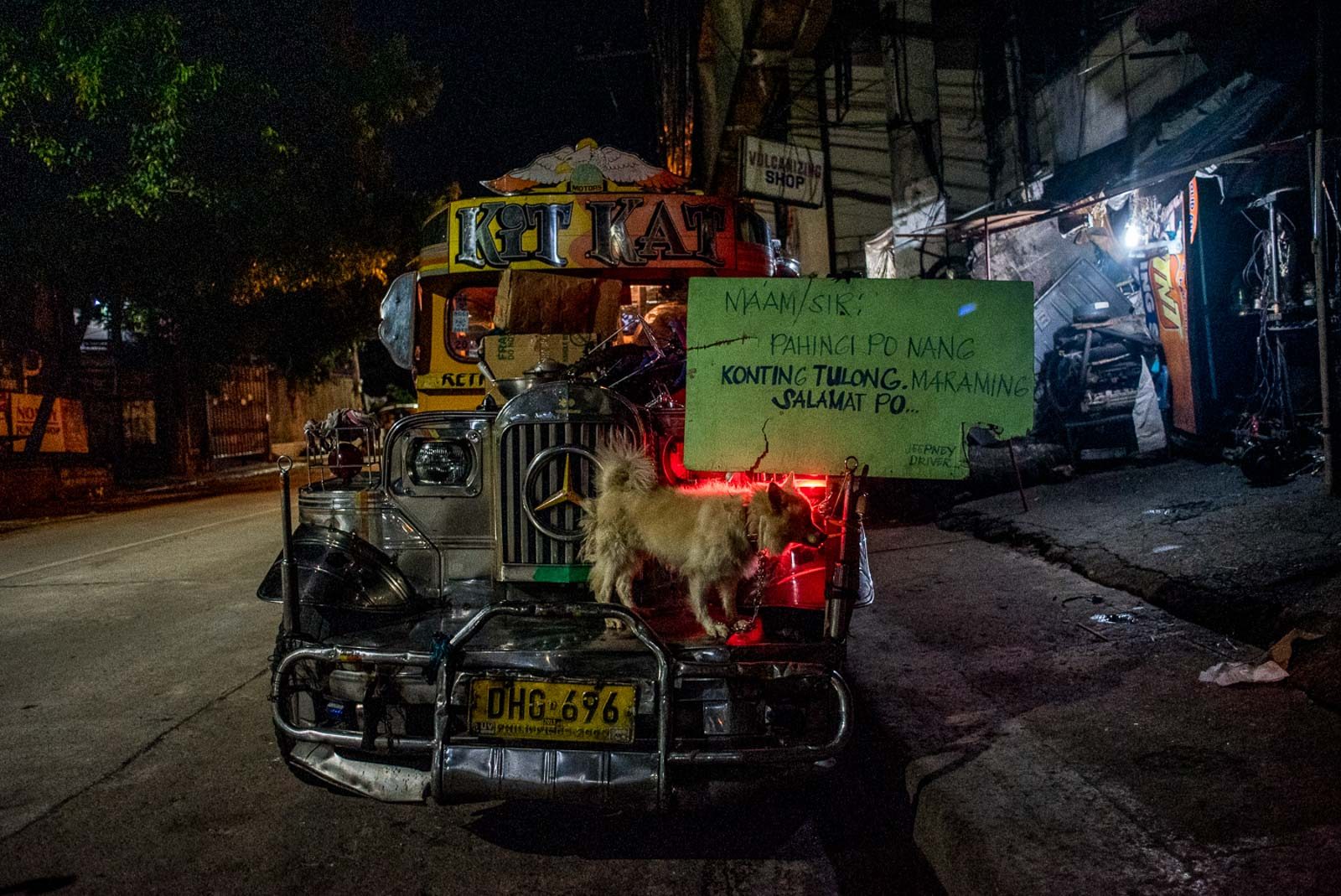
Little by little, passersby started to take notice of the signages and extend some help. The family received relief packs, other basic necessities, and, sometimes, cash assistance.
“Nakita siguro kaming kumakain dito. Ulam namin sardinas. Siguro itong driver na ito, ’ika, gusto maghanapbuhay pero wala namang magawa,” he said. “Hindi rin naman naming ginustong ma-lockdown dito eh. Lahat naman nawalan ng biyahe.”
(Maybe they saw us here eating sardines. Maybe they thought that this driver wanted to make a living but had nothing he could do. We didn’t want to get locked down here. Everyone has lost his livelihood.)
Julius amassed enough food supplies to feed his family and help other jeepney drivers who had been jobless since the lockdown after his story was featured in several news organizations. They didn’t have to skip breakfast anymore or worry about their two-year-old waking up hungry at night – at least for now.
Jeepneys still not allowed to operate
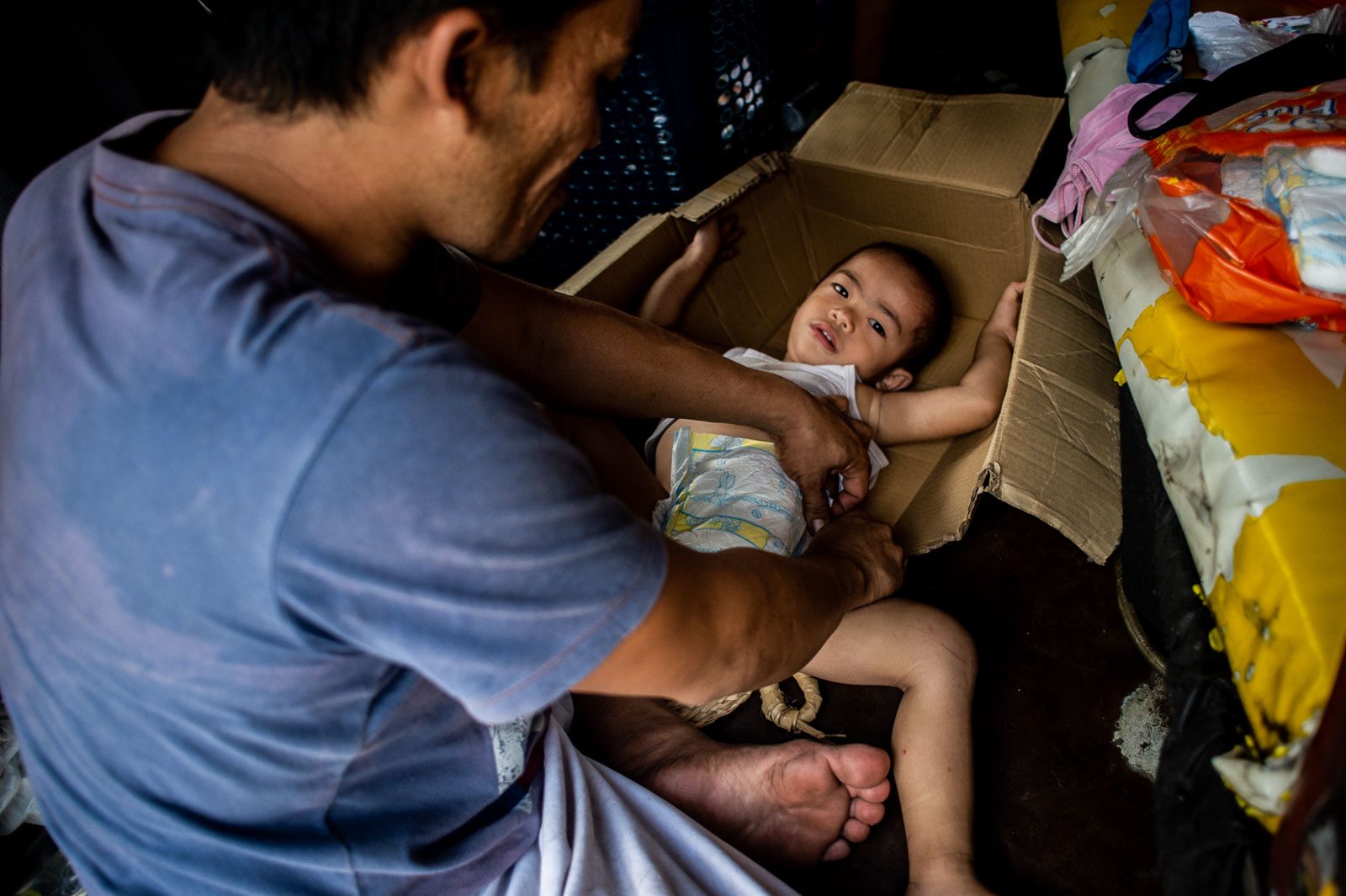
As Metro Manila eases its lockdown, jeepneys are still not allowed to ply their routes. Julius and many other jeepney drivers, who depend on daily earnings, remain on the sides of the road, calling for help.
When the announcement that movement restrictions would take effect in Metro Manila came, it was not a shock for Julius that they would not be allowed to operate. What he did not expect was that the restrictions would last for almost 3 months now.
“Mukha talagang wala nang pag-asa ang jeep ah,” Julius said when he learned that no jeepneys would be allowed in Metro Manila until June 22. (It seems like there is no more hope for jeepneys.)
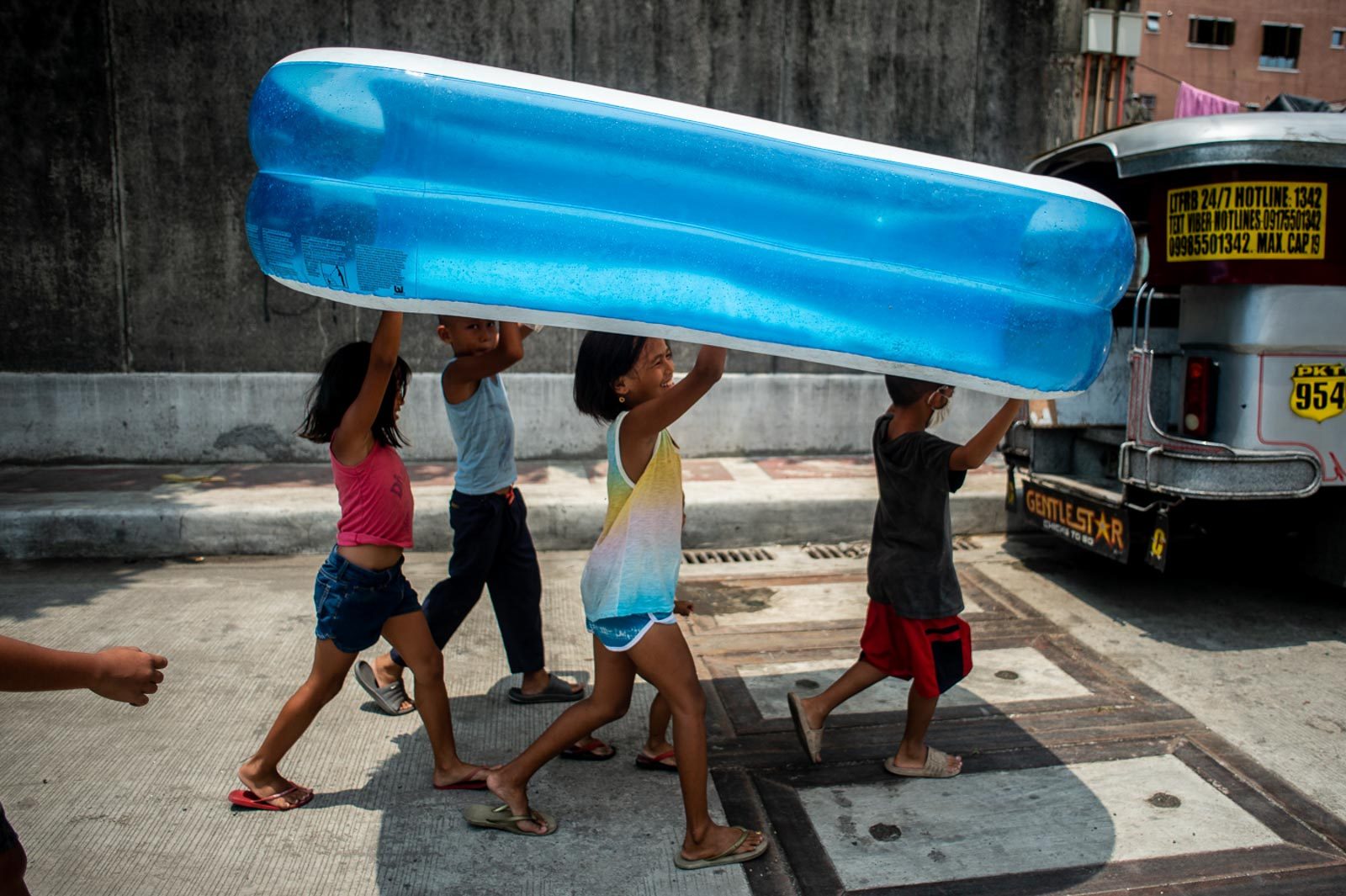
Jeepney drivers have been hard hit by the sudden halt of public transportation. Julius said that what he used to earn on a daily basis for the past 12 years as a jeepney driver was only enough to cover a day or two of their family’s expenses.
“’Yung driver naman talaga hindi nakakapondo ng malaking-malaki, lalo na kung marami kang sinusubuan. Siguro kung binata ka, makakaipon ka. Pero ’yung sinasabing makakipon ka ng malaki sabay ’yung nangungupahan ka pa ng bahay, naku po, hindi na,” he said.
(A driver won’t really be able to save that much, especially if you are feeding a lot of people. Maybe if you are single, you will be able to save. But to say that you can save a lot while paying rent is not true.)
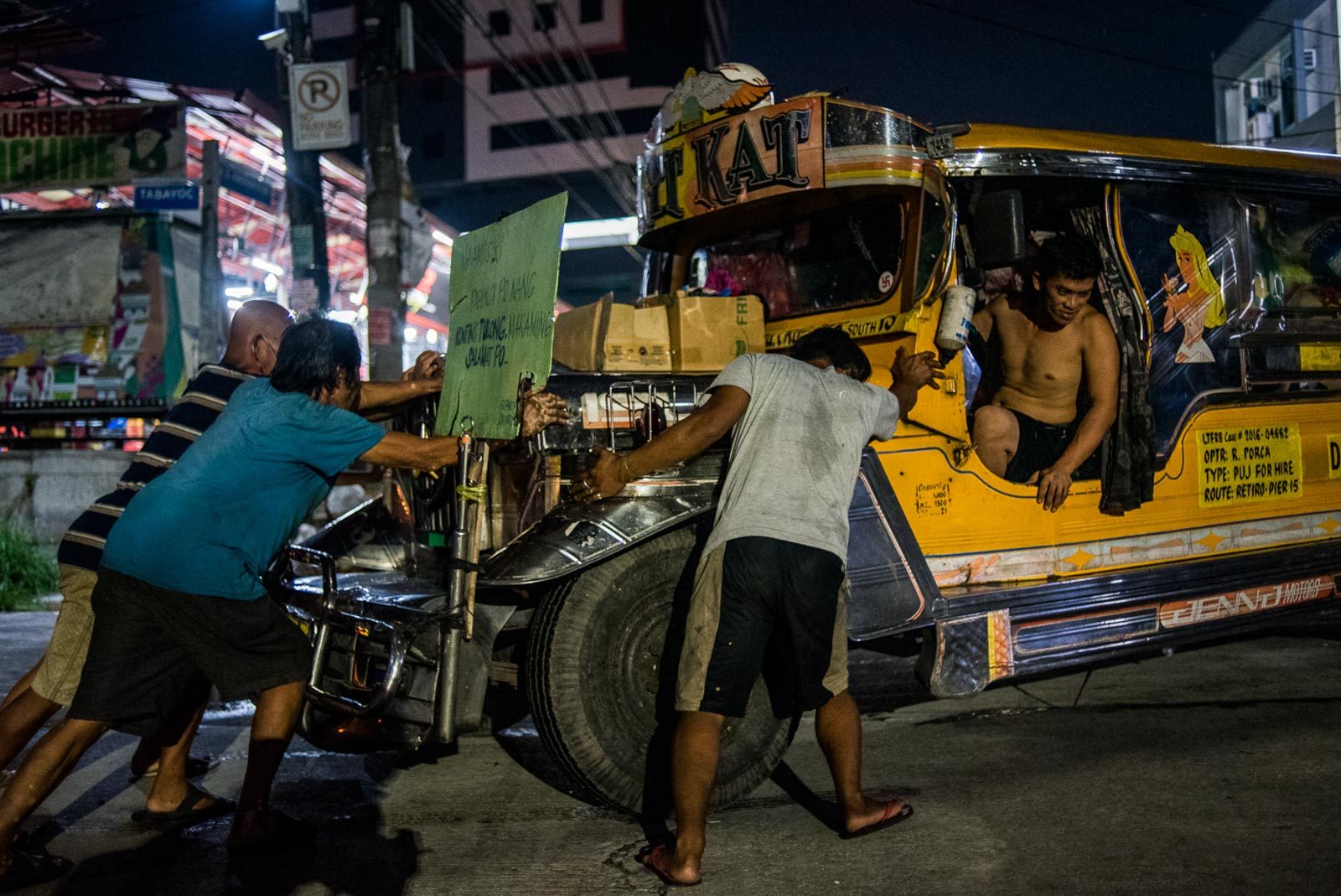
Julius said that some of his colleagues had given up on the idea of driving a jeepney again. One jeepney driver under the same operator already quit, another went to apply as a private driver. Others resort to opportunities in food delivery services.
“Talagang sapalaran ang laban ngayon. Basta kikita. Kikita sa araw-araw. Kung matetengga lang, naku, hirap. Kailangan talagang humanap ng ibang trabaho,” he said.
(It is really a matter of survival. As long as we earn every day. If one gets idle, it’s difficult. We really need to find other kinds of work.)
Like other jeepney drivers, he is starting to consider looking for another job. His jeepney is due for registration renewal this June, and he worries that it will be among the units to be phased out under the government’s modernization program.
Still, Julius and his partner remain hopeful that traditional jeepneys will soon be back on the road.

“’Yun talaga ’yung hinihintay namin – ang makapagbiyahe siya. Sabi ko, kahit social distancing eh kahit paano may pera. At least may pagkakakitaan, kaysa ganito na wala, mas mahirap,” his partner Erlin said.
(That is what we have been waiting for – for him to be able to drive again. I told him, even if there is social distancing, somehow there is income. At least there is livelihood rather than none, which is more difficult.)
“Wish ko sana pagbigyan nang makabiyahe ang mga jeep. ’Wag muna alisin kaagad ’yung jeep kasi talagang sa jeep ang parang buhay namin eh,” he said.
(I wish that jeepneys will be allowed to operate again. I hope that the phaseout will not be implemented soon because this has been our livelihood.)
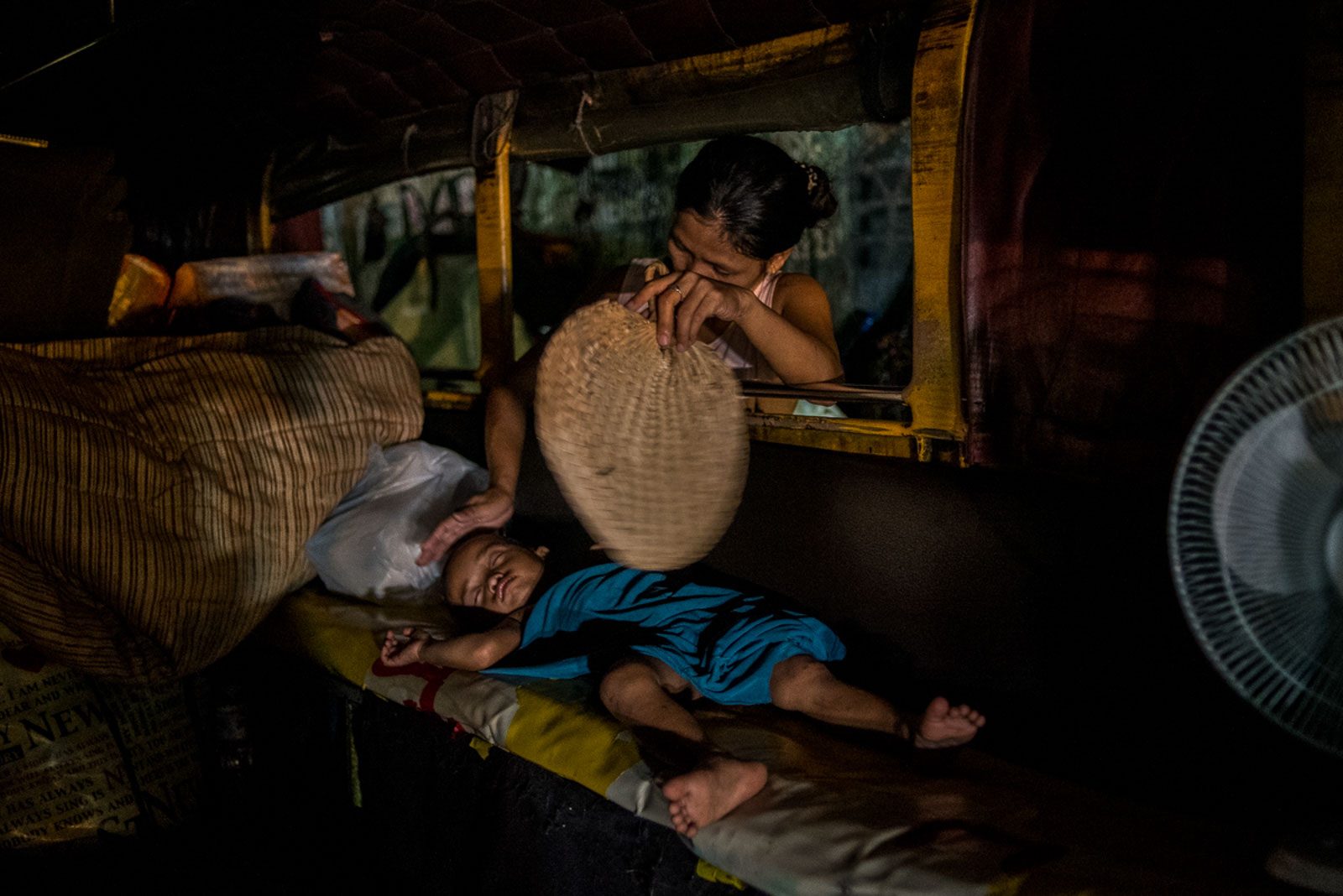
Metro Manila shifted to general community quarantine (GCQ) on June 1, but jeepneys are still not allowed to operate until the second phase of the resumption of public transport on June 22. Traditional jeepneys will only be allowed on the road if there will be insufficient buses and modern public utility vehicles (PUVs), subject to conditions like roadworthiness.
Transport group Piston has staged several protests in Metro Manila, calling for the lifting of the ban on jeepneys.
A protest on June 2 in Caloocan City led to the arrest of jeepney drivers Ruben Baylon, Elmer Cordero, Ramon Paloma, Wilson Ramilla, Severino Ramos, and Arsenio Ymas for allegedly violating quarantine measures on mass gathering and for alleged resisting authorities.
As of Tuesday evening, June 9, all 6 drivers had been able to post bail – thanks to the contributions of ordinary people. – Rappler.com
Add a comment
How does this make you feel?
There are no comments yet. Add your comment to start the conversation.